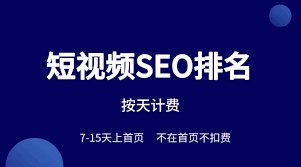ChinaSEOTactics:LeveragingLocalInsightsforGlobalImpact
In the vast landscape of digital marketing, China stands as a colossus, not just in terms of its massive online population but also due to its distinct approach to Search Engine Optimization (SEO). This article delves into the intricate strategies that Chinese marketers employ, leveraging deep-rooted local insights to make a significant global impact. By understanding these tactics, businesses worldwide can glean valuable lessons on how to adapt and thrive in the ever-evolving digital ecosystem.
The Rise of China's Digital Landscape
China's digital economy has experienced unprecedented growth over the past decade, fueled by widespread internet adoption and the proliferation of smartphones. With over 900 million internet users, it's no surprise that companies are vying for visibility in this crowded space. Unlike many Western markets where Google reigns supreme, China has its own dominant players like Baidu, Sogou, and Shenma, each with their nuanced algorithms and user behaviors.
Localized Keyword Research
One fundamental aspect of China's SEO strategy is hyper-localized keyword research. Marketers don't just target generic keywords; they delve into regional dialects, cultural references, and trending topics specific to different provinces or cities. For instance, a beauty brand might use different keywords to target consumers in fashion-forward Shanghai versus more traditional Beijing. Tools like Baidu Index and Sogou Trends are indispensable for uncovering these localized search patterns.
Content That Resonates
Content is king, but in China, it’s the emperor. To truly resonate with Chinese audiences, content must be culturally relevant and locally tailored. This goes beyond mere translation; it involves understanding local idioms, humor, and social norms. User-generated content (UGC) and influencer partnerships play a pivotal role here, as they help brands build authentic connections with consumers. WeChat Moments and Douyin (TikTok's Chinese counterpart) are ripe with UGC opportunities that can significantly boost engagement and SEO rankings.
Mobile-First Indexing

China's mobile-first culture cannot be overstated. With most internet users accessing the web via smartphones, search engines prioritize mobile-friendly websites. Responsive design isn't just an option—it's a necessity. Moreover, features like Accelerated Mobile Pages (AMP) and voice search optimization are becoming increasingly important as Chinese consumers demand faster, seamless browsing experiences.
Social Media Integration
Social media platforms like WeChat, Weibo, and Douyin aren't just for social interaction—they're integral to China's SEO strategy. These platforms serve as powerful channels for content distribution, link building, and even direct sales. Brands often leverage social media campaigns to drive traffic back to their websites, thereby improving domain authority and search rankings. Understanding the unique algorithms and user behaviors on each platform is crucial for maximizing their SEO potential.
Baidu SEO vs. Google SEO
While both Baidu and Google aim to deliver relevant search results, their methodologies differ significantly. Baidu places a stronger emphasis on local content, backlinks from Chinese websites, and adherence to its unique set of guidelines. On the other hand, Google tends to favor globally recognized sources and follows different quality standards. Therefore, when targeting the Chinese market, businesses must tailor their SEO strategies to align with Baidu’s preferences without neglecting their global presence.
E-commerce and Paid Search Synergy
China's e-commerce giants like Alibaba and JD.com offer integrated platforms where paid search ads complement organic SEO efforts. By strategically bidding on high-intent keywords and optimizing product listings, brands can capture valuable traffic that might otherwise go to competitors. The synergy between organic and paid search creates a robust online presence that drives sustained growth.
Navigating Regulations and Censorship
Operating in China comes with its own set of challenges, including strict internet regulations and the Great Firewall. Marketers need to navigate these hurdles carefully, ensuring compliance while still delivering value. Using secure hosting solutions and avoiding sensitive topics can prevent potential pitfalls associated with censorship.
Global Implications
The tactics honed in China’s unique digital environment have broader implications for global SEO practices. As other regions recognize the importance of localization and mobile-first strategies, they too can benefit from adopting similar approaches. Additionally, the rapid innovation seen in China often sets precedents that the rest of the world follows, making it a leading indicator of future trends.
In conclusion, China's SEO tactics offer a masterclass in leveraging local insights for global impact. By prioritizing hyper-localized keyword research, culturally relevant content, mobile optimization, social media integration, and strategic e-commerce practices, businesses can unlock unparalleled opportunities in the Chinese market while setting a benchmark for international success. As the digital landscape continues to evolve, staying attuned to these dynamic strategies will be key to navigating the complexities of global SEO.












